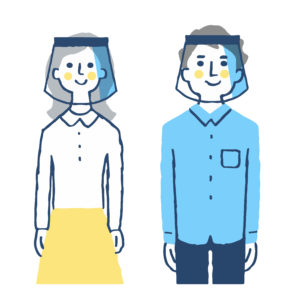
Last summer, Nike began requiring its retail employees to wear masks to combat the spread of COVID-19. A few weeks later, Cali Bunn entered one of its San Diego-area stores to purchase some shoes. Ms. Bunn is deaf and, like other deaf and hearing-impaired customers, relies on her ability to read other's lips to communicate.
Ms. Bunn sued Nike in federal court in California (Bunn v. Nike Inc.), alleging violations of the Americans with Disabilities Act and corresponding California public accommodation laws. Ms. Bunn argued the opaque masks worn by Nike employees caused communication difficulties because they "muffle sound and conceal the wearers' mouths and facial expressions."
Nike recently settled the lawsuit, agreeing to provide transparent masks as well as pens and paper to its retail employees so those employees can more easily communicate with deaf and hearing-impaired customers.
Nike "Just Does It" – Retail Employees Will Wear Transparent Masks
The content of this article is intended to provide a general guide to the subject matter. Specialist advice should be sought about your specific circumstances.


